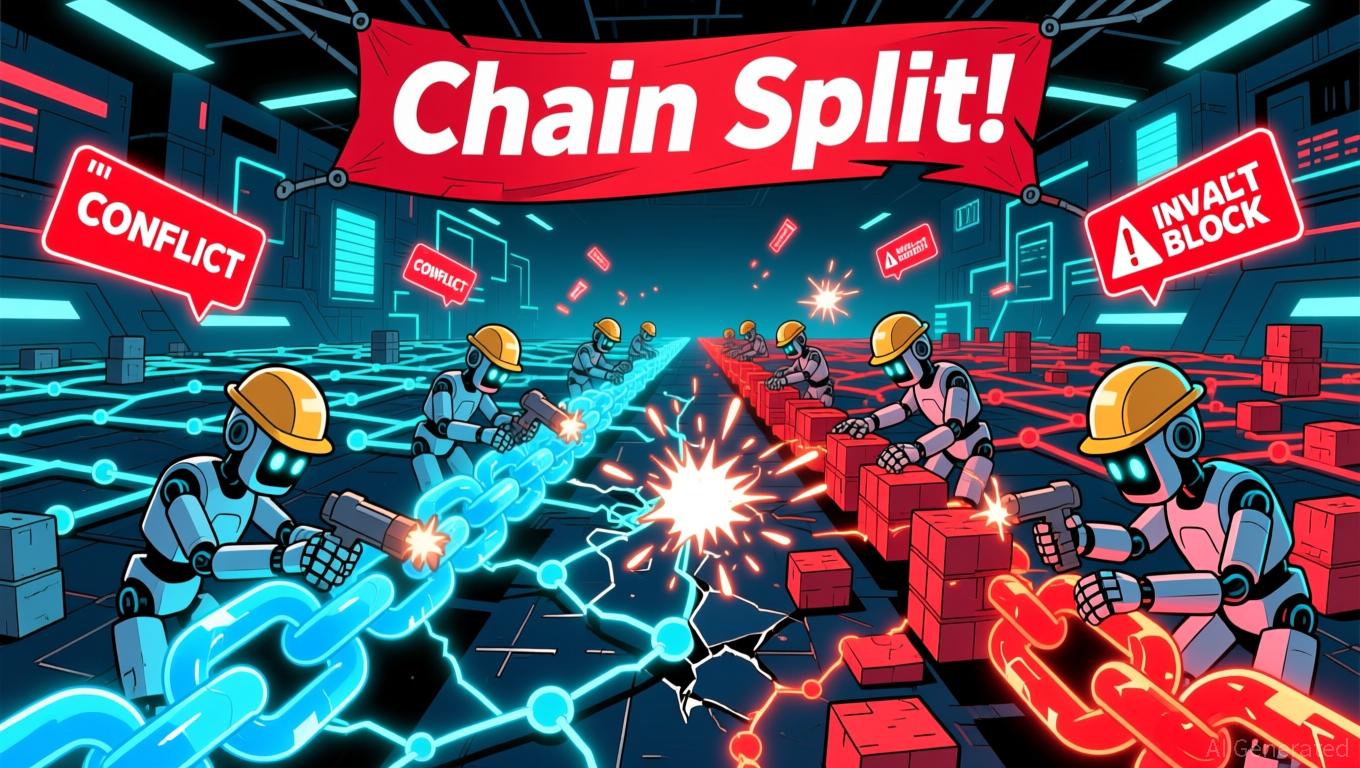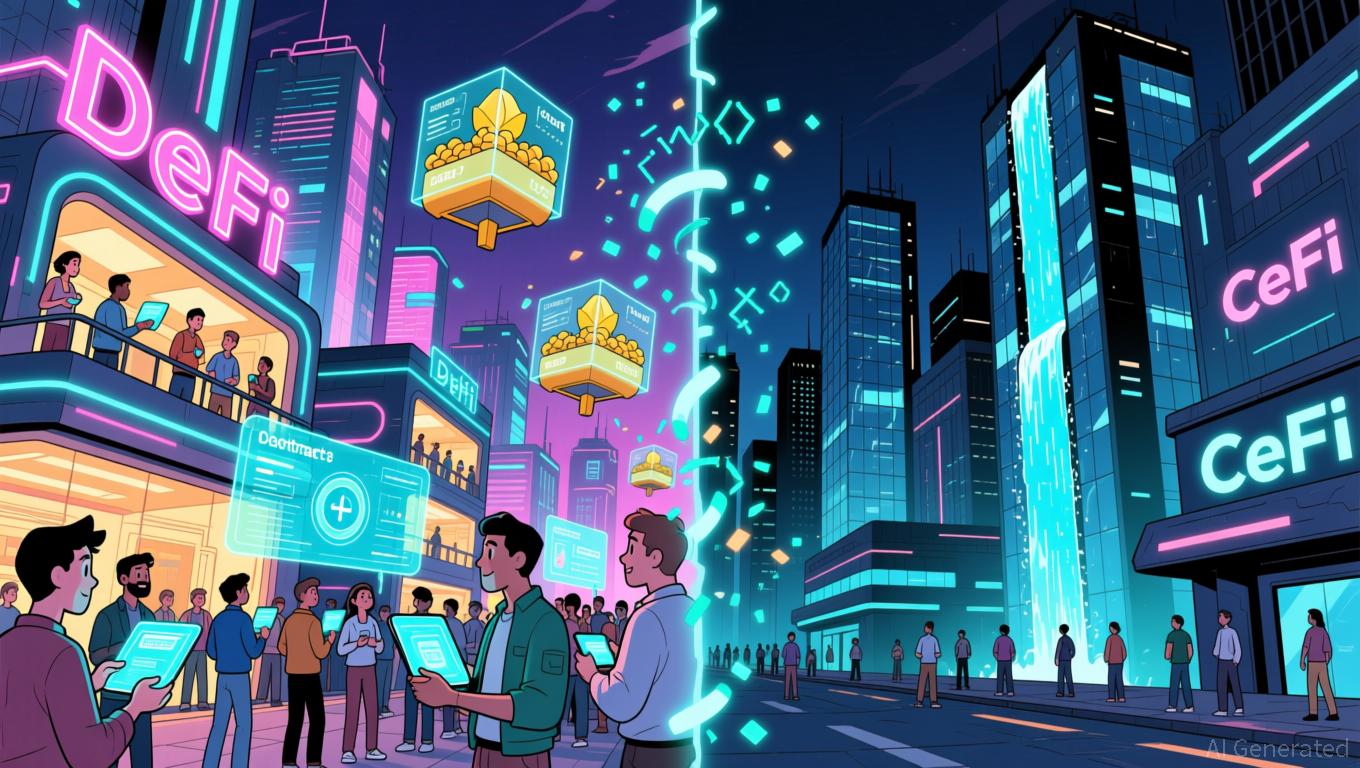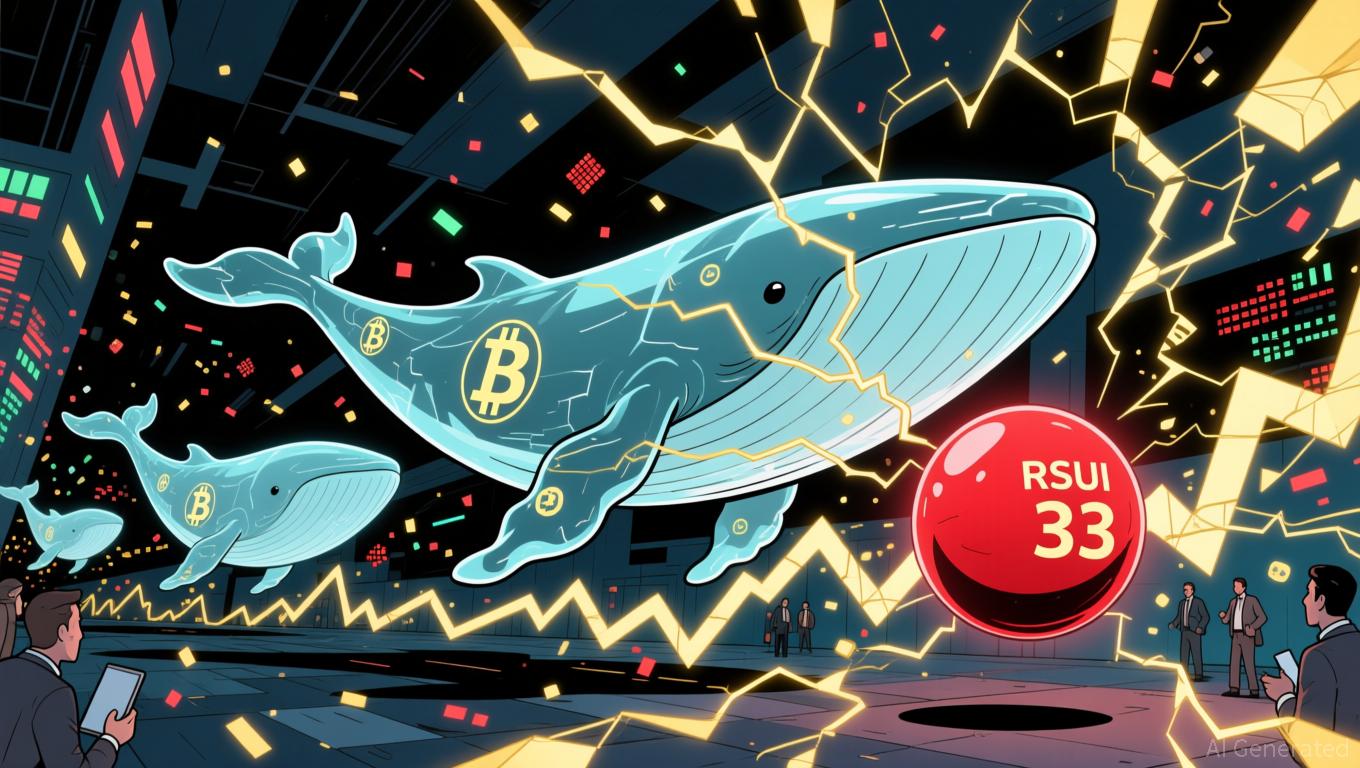Cardano News Update: Chain Split Highlights Governance Challenges and AI Threats
- Cardano's blockchain suffered a critical chain split on Nov 21, 2025, caused by an AI-generated transaction exploiting a 2022 bug. - Staking pool operator "Homer J" admitted testing network limits with untested AI code, creating competing chains until emergency patch 10.5.3 resolved the split. - Founder Charles Hoskinson called it a "premeditated attack," highlighting risks of double-spending and DeFi disruptions despite no funds being lost. - The incident exposed governance flaws, including unpatched 20
On November 21, 2025, Cardano’s blockchain experienced a major security breach when a chain split interrupted its normal function, sparking concerns about the protocol’s durability. This disruption, caused by a malformed transaction that took advantage of a bug present since 2022, highlighted weaknesses in both the network’s governance and its technical defenses.
The split was initiated after a staking pool operator known as "Homer J" submitted an AI-generated transaction meant to push the network’s boundaries. This transaction slipped past regular validation protocols, resulting in two parallel chains—one accepting the invalid block, the other rejecting it. As miners began to build blocks on both sides, the network was briefly divided until a critical software patch (version 10.5.3) was quickly released to resolve the issue

This episode highlights the dangers posed by human mistakes and unverified code in blockchain environments. Homer J confessed to deploying AI-generated code without adequate testing, describing his actions as a "personal experiment" that unintentionally put the network at risk.
Cardano’s swift resolution of the crisis, with engineers addressing the problem within a matter of hours, has been commended as evidence of the network’s technical strength. Nonetheless, some critics believe the event exposes more fundamental issues in governance. The bug from 2022 lingering in the code and insufficient patch testing have led to doubts about the project’s formal, research-based methodology.
The value of
As blockchain platforms become more intricate, the
Disclaimer: The content of this article solely reflects the author's opinion and does not represent the platform in any capacity. This article is not intended to serve as a reference for making investment decisions.
You may also like
MAHA's Struggle with Identity: Corporate Connections Versus Community Origins
- Robert F. Kennedy Jr.'s MAHA movement faces internal fractures as corporate partnerships and policy shifts alienate grassroots supporters. - Critics accuse the administration of abandoning anti-vaccine roots through $500M funding cuts and collaborations with biotech firms like Eli Lilly . - Former allies condemn MAHA's "identity crisis," while 67% public support persists despite warnings about coalition dilution from experts. - Kennedy defends pragmatic alliances as necessary for governance, but faces pr

Redefining Confidence: How DeFi's Openness is Transforming Crypto Lending
- DeFi platforms now dominate 66.9% of crypto lending, surpassing CeFi with $41B in Q3 2025 growth driven by yield farming and innovations like Pendle tokens. - The shift reflects demand for transparency and composability, with Aave's Plasma blockchain attracting $3B in borrows within weeks and Mutuum Finance's $20M presale highlighting DeFi's permissionless liquidity. - CeFi lenders like Tether hold 59.91% of tracked loans but face 33% smaller market size than 2022 peaks due to stricter collateral rules a

Bitcoin News Update: Crypto at a Turning Point: Major Investor Acquires $2.3B While $3.8B Leaves ETFs
- Bitcoin's RSI hit a 2022 low (33), signaling extreme oversold conditions as institutional buyers and crypto whales re-enter the market. - Ark Invest led $79. 3M in crypto stock purchases (Bullish, Circle , Bitmine) while U.S. spot Bitcoin ETFs saw $3.79B in November outflows. - Whale accumulation added $2.3B in BTC (26,300 coins) but contrasted with BlackRock's $523M IBIT redemption and Owen Gunden's $1.3B BTC liquidation. - Market analysts highlight conflicting signals: Ark's "buy the dip" strategy vers

Van Eck CEO Managing Billions of Dollars Says, “If This Happens, We’ll Walk Away from Bitcoin,” Names One Altcoin